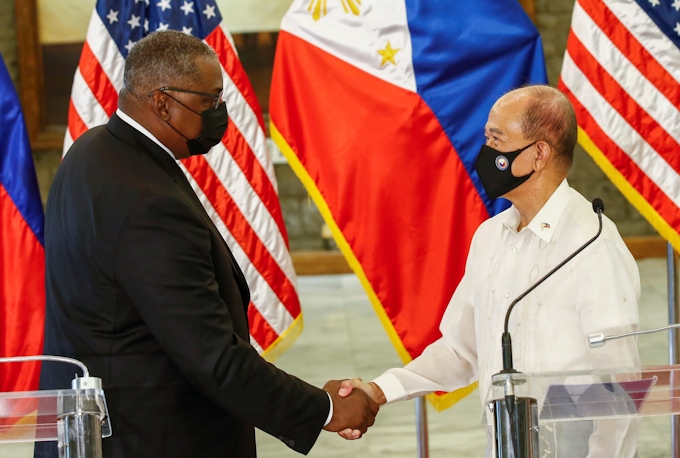
Fill the Power Vacuum in the US-Philippine Alliance
The Visiting Forces Agreement was the basis for America’s use of ports and for its joint exercises. Other agreements — a joint defense treaty and an agreement to enhance defense cooperation — had meaning thanks to the VFA.
Duterte reportedly announced that he was unilaterally annulling the VFA in February of last year out of anger that a former police chief he is close to had been denied an American visa on suspicion of committing human rights abuses. Subsequently, the annulment never actually took place.
The inaction was blamed on the COVID-19 pandemic. After the annulment was announced, Chinese ships attacked Philippine naval ships with lasers. Numerous unnerving events also took place in the background including the unilateral creation of administrative districts on disputed islands in the South China Sea.
The Philippines is one corner of the American alliance in the Indo-Pacific region, along with Japan, South Korea, Australia and Thailand. If the VFA had lapsed, the alliance might have been defanged, which could have had a major effect on the power balance in Asia.
Defense Secretary Lloyd Austin agreed last week with the reversal of the the annulment on a visit to the Philippines. This was the first visit to Southeast Asia by a cabinet official in the Joe Biden administration, and the removal of an item of concern in the security field was a major accomplishment.
China has cleverly taken advantage of the power vacuum opened up by the rift in the Philippine-American alliance and accelerated its maritime advances.
In 1995, three years after the U.S. military’s general withdrawal from the Philippines, China occupied Mischief Reef. The VFA was formalized in 1998 as a result, but in 2012, Chinese occupation of Scarborough Reef was permitted. Dissatisfaction with the Obama administration’s passive response at the time was a distant factor in Duterte’s annulment announcement.
The Biden administration, which is emphasizing the need to coordinate with allies against China, may use the continuation of the VFA to make reexamining security cooperation with the Philippines an urgent matter.
